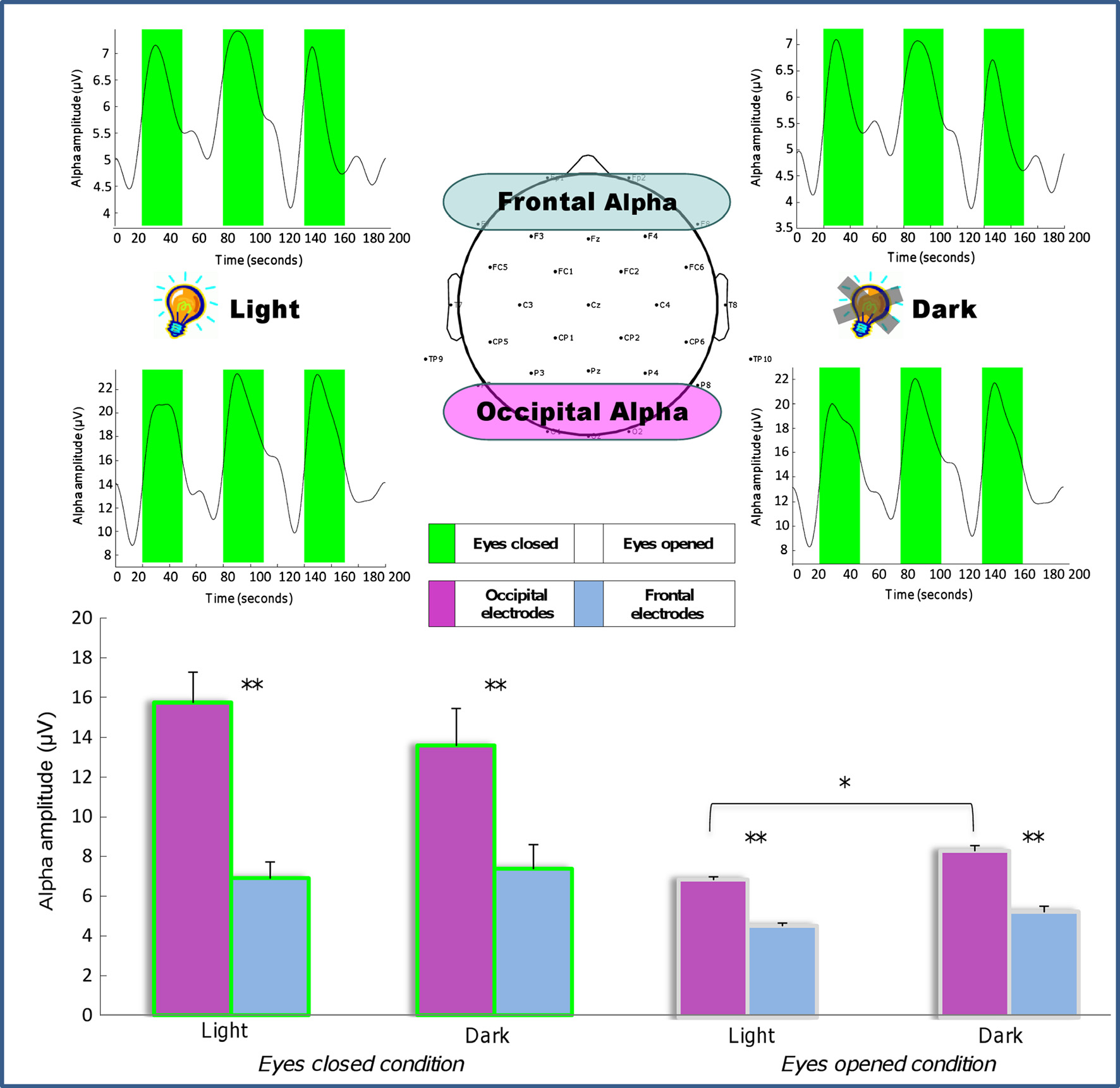Yes they do.
That is to say, light conditions do not generally affect alpha waves, only the eyelids do (and other factors). This has led to alpha waves being interpreted as reflecting an active inhibitory process in the visual cortex (relaxation) rather than a reduction of stimulus (resting).
The following image is from an Israeli study published in 2013 called "The dark side of the alpha rhythm":
 Notice how all the graphs show no significant difference between light and dark conditions in both eyes open and eyes closed cases.
Notice how all the graphs show no significant difference between light and dark conditions in both eyes open and eyes closed cases.
Mounting evidence from studying blinking, saccades, and stimulating the retina from behind the eyelids (through the oral cavity) suggests that closing the eyes initiates an inhibitory process that actively blocks visual processing (rather than passively relying on darkness), so darkness is not necessary, only shutting the eyes is sufficient.